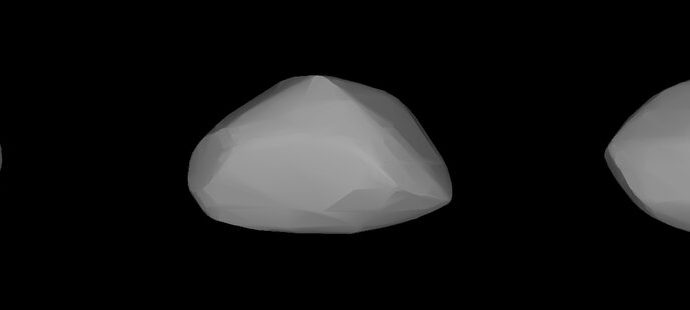David Tholen, an astronomer at the University of Hawaii, recently reported on the status of asteroid Apophis during a virtual meeting of the American Astronomical Society’s Division for Planetary Sciences. During his presentation, he outlined research he and his team conducted regarding the path of the asteroid and the likelihood that it will strike Earth.
Source: Phys.org
The asteroid Apophis was first spotted by astronomers back in 2004. Shortly thereafter, researchers worked out its orbital path and found that the 340-meter-wide asteroid would pass near to the Earth in 2029, 2036 and again in 2068. More study showed that there was little chance of the asteroid striking Earth; thus, it was discounted as a threat. More recently, Tholen and his team noted that earlier researchers had not accounted for the Yarkovsky effect by which rays from the sun strikes one side of an asteroid. As the heat radiates away from the asteroid, a small amount of energy pushes back against the asteroid, forcing it to turn slightly. Tholen and his team calculated that the Yarkovsky effect is pushing Apophis to one side enough to force it to drift by approximately 170 meters a year. They next applied that bit of knowledge to the math describing Apophis’s orbit and found that the drift is changing the course of the asteroid in a way that will bring it closer to Earth. He notes that thus far, there is no indication that the asteroid will strike the Earth in 2029 and 2036, but 2068 might be another matter. He suggests that astronomers will have to keep an eye on Apophis as its rendezvous date approaches.
As news of a possible threat from Apophis arises, others have pointed out that the human race has made strides in protecting the planet from asteroid strikes. NASA’s DART mission, for example, scheduled for 2022, will involve sending a spacecraft to an asteroid called Didymos and using it to alter the path of Dimorphos, one of its moons. Tholen noted during his talk that study of Apophis when it passes by in 2029 should give scientists a much better idea of whether or not it poses an actual threat in 2068.
Source: Phys.org

































Leave a Comment
You must be logged in to post a comment.